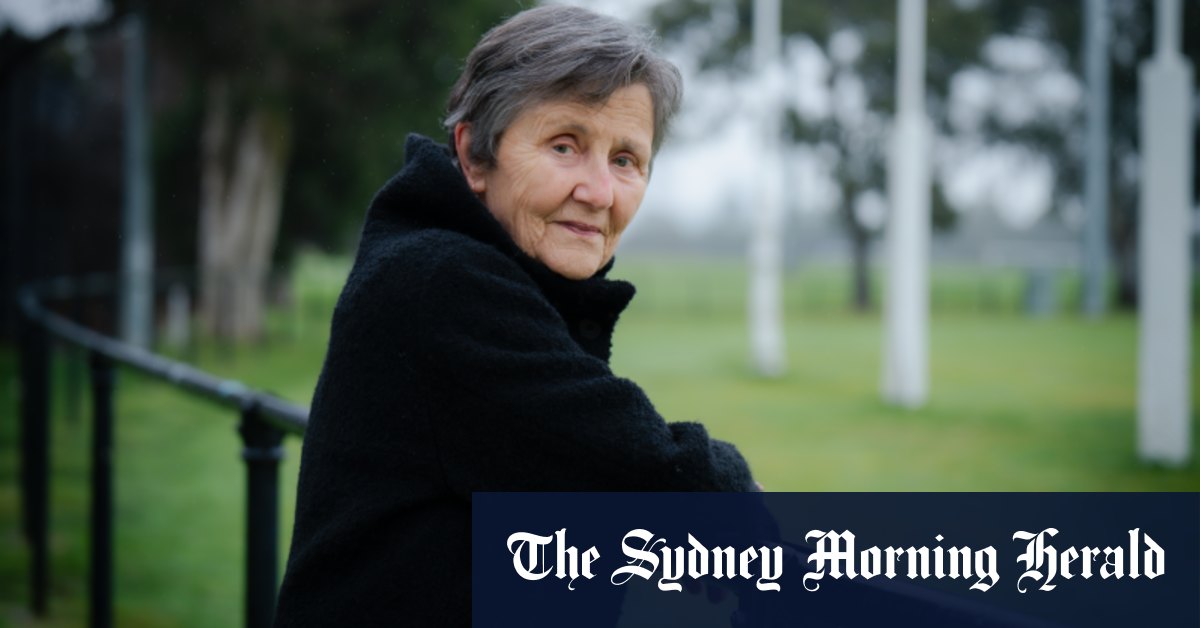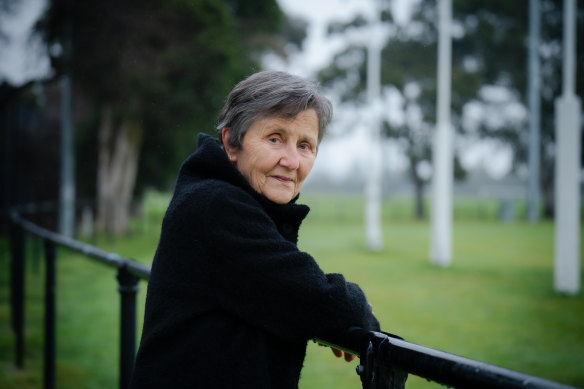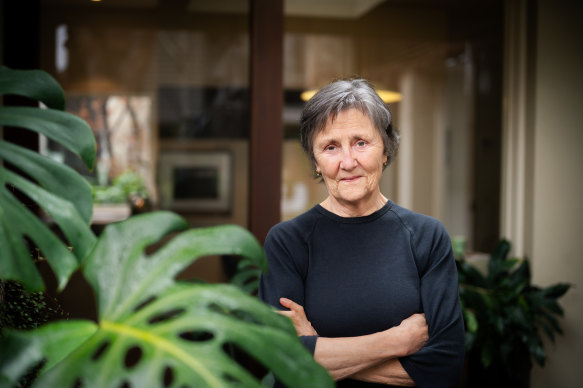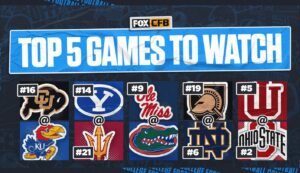
Helen Garner’s decision to write a first-person account of her grandson’s junior footy team, its travails and triumphs and her exploration of both the game and his exit from adolescence, was replete with self-doubt. She wondered whether she was up to the task of writing a happy story. Aged 81 when she began following the Flemington Colts, she was unsure whether she was capable of completing the book.
Throughout The Season, Garner also flaunts her lack of footy knowledge, asking Ambrose or his footy-head father to decipher the arcane rules and rites of an obsessively followed code.
“I’m used to writing about people who are in traumatic states, but they’ve lost everything and people have died and there’s been a murder or something like that,” says Garner of her excursion into footy, via a suburban under-16 team. “I thought, geez, this is a happy story. How am I going to write this?”
So why do it? “I was bored. And I thought, I was, what, 81. And I thought, is it over? Am I done?”
Far from it. The Season is her first standalone book – as distinct from a collection of short pieces – since the heavy-duty true crime/Greek tragedy This House of Grief, about a man who drove his sons into a dam and was convicted of murder in a trial that captivated the nation.
If the sporting subject surprises some readers and denizens of Australia’s small literary village, Garner has taken on what Ron Barassi called one of the world’s great inventions – Australian Rules football – with the same approach that defines most of her writing.
The Season is marked by her unsparing eye for detail and that superpower of detachment – a narrator who sees everything yet who is also deeply involved in the story, with emotional flourishes that rise when she watches her grandson.
It reads like she’s a visitor to a foreign country, as in Mark Twain’s account of Australia (especially the Melbourne Cup) or even Alexis de Tocqueville, the 19th century French nobleman, observing the United States for his tome Democracy in America.
But it’s just plain old footy, too. She calls it “a nanna’s book”.
Garner agrees that she came to footy as a visitor. “I couldn’t say that I know footy. I follow the Western Bulldogs. I really care about what happens there. But I don’t understand the finer points of the game,” she tells me.

Helen Garner at the suburban ground where she watched her grandson play.Credit: Darren James
That said, Garner’s observational gifts – and sparse, effective use of language – are comparable to her favourite Bulldog Marcus Bontempelli’s in reading the game; she finds meaning in the mundane routines of footy, her grandson’s training sessions, and in watching the Bulldogs, that remind mundane footy writers of their own literary limitations. Garner locates insights into footy that the obsessive or expert don’t notice.
She had kept a diary when watching “Amby” train and play for the Colts, in their western suburbs local under-16 competition, during 2023. Midway through the season, she realised that a book was feasible.
Over the course of this 2023 season, Garner became a participant, which she said was evident when she began calling the Colts “we”.
“I just became emotionally involved,” she says. “I mean, I sort of scream and rave at watching the Western Bulldogs on TV, I get really emotionally involved with those matches, and you know things that I see about footy can make me burst into tears of rage like watching people boo Buddy Franklin.
“[But] I’ve never had a personal connection with anyone in a team before. Ambrose has been playing since he was eight.” Ambrose’s older brother played briefly and his older sister Olive played with Melbourne University’s “Muggers”.
I’m trying to write about footy and my grandson and me … A record of a season we spend together before he turns into a man and I die.
Helen Garner
“I just watched those girls play and they were fabulous … but I wasn’t close enough to the end of my grandmother-hood to realise that this was something, that this is my last chance to see.”
Loading
At my partner’s urging, I propose that Garner and I meet at the very Kensington oval where she spent so many hours, watching the Colts complete “match sim” (simulation) and regulation drills in flood-lit evening training, along with games on weekends.
She’s seated on the same bench, just behind the goals, that was her vantage for The Season – straw hat, white shirt and glasses dangling on a string over her neck. The rain soon sends us to the pavilion, where she’s prepared by packing a groundsheet we can sit on. I’ve provided coffees from a local cafe.
The question of why this project – and not another topic, presumably something more serious – is answered succinctly on page 92 of the book.
“Why don’t I keep my mouth shut when people ask me what I’m writing? I’m surprised how many jump to the conclusion that it’s something polemical, a critical study of football culture and its place in society, informative, analytical, statistical. Really I’m trying to write about footy and my grandson and me. About boys at dusk. A little life-hymn. A poem. A record of a season we spend together before he turns into a man and I die.”
We turn to that passage. “It’s the last grandchild and I’m suddenly thinking I’m not going to be around much longer,” Garner explains. “I reckon I’ve got maybe 10 years, touch wood. I thought my grandmother life is almost over and how can I let this go past without giving it a really good look?”
She did ponder the question of why she was focused on men. “If you’re a woman in this world and you’re a feminist, you’re writing about men, there’s always this little voice saying ‘oh why aren’t you writing about women?’ And I thought ‘because I want to write about my grandson, that’s why’ – this is about me and my grandson on the deepest level. And the whole matter of women’s footy is to me a whole world apart from what I know, even though my granddaughter [played].”

Garner has been living next door to her daughter and three grandkids for 25 years.Credit: Darren James
So she drove Amby to training nearly every session, watched the team and discovered a cast of characters within the team, most known by nicknames, such as “Boof”, “Meth” and “Remy.” The book has parallels with the American football classic Friday Night Lights (which Garner hasn’t yet read nor watched the fictionalised TV series) about a high school football team in a Texas oil town, in how the reader is drawn into real lives. This is less pronounced in Garner’s book – her focus is primarily Amby and herself.
But as with the earlier book, you wonder how far the Colts will go. I won’t give away the ending – whether this is a fairytale or near-miss. Towards the end, Garner has a vivid dream that she finally reveals as the Colts reach their denouement.
Did the season together change the grandmother-grandson relationship? “No, not really. It’s deepened it. As you can probably tell, we were already on pretty good terms. He’s an affectionate, open sort of kid, easy to get on with … we’ve always got on well, because I live right next door to them, so I’ve been in his life since he was born.”
Garner has been living next door to her daughter Alice and her husband and their now three kids, in Flemington for 25 years. “It’s the best thing that’s ever happened to me, bar none,” she says.
The book started from a place of curiosity. “I just wanted to see what he was like as a person … I thought ‘I wonder what he’s like out there’, and it was very interesting to me to watch him functioning in the world.”
Loading
The Western Bulldogs are the book’s counterpoint and subplot, since they are followed by the merged households and especially by Dave, Amby’s father, who grew up in St Albans and is visibly shattered when the Dogs are upset by West Coast. Garner had realised years earlier that “to hang with this family I was going to have to learn more about footy”.
In the book, she recounts how she followed the club ever since watching the documentary Year of the Dogs (1997), her faith secured when Chris Grant, the club’s champion, explained why he’d stayed with the impecunious Bulldogs.
Garner explains her conversion to the Bulldog breed thus: “He said ‘I got a letter from a young boy. “Dear Chris Grant, please don’t leave. I haven’t got much money. This is all I can give.” And he’d sticky-taped on to the letter a fifty-cent piece. So of course I couldn’t leave, could I.’
“I got off the couch, went straight to the computer with my credit card, and joined his club,” Garner writes.
Garner finds much that is noble within the game. I tell her how I saw Bontempelli at the funeral of young football journalist Sam Landsberger, a matter of days before the Bulldogs played Hawthorn in the elimination final. Landsberger’s father, Jake, had served as the club doctor for decades.
“I think Bont is pure class and he’s one of the players who bring the nobility of football you can’t help…” She didn’t need to finish the sentence.
Garner excitedly extracts from her phone a poignant photo of Bontempelli with his arm affectionately around injured teammate Josh Bruce. “He’s just done his knee for the second time and Bont is just comforting him. That’s straight out of Virgil and Homer.”
Is The Season her most personal book? That would be saying something, given her frequent mining of her experiences, her celebrated career having been launched by Monkey Grip, a grimly realistic semi-biographical novel of bohemian share-house life in 1970s Carlton and Fitzroy.
Monkey Grip, I tell Garner, often comes to mind when I see “Aqua Profonda” on the wall at the Fitzroy pool. This prompts her to roll up her sleeve. “I’m marked all over from the times I spent at that pool … skin cancers I’ve got, I’m covered with the bastards.
“It was worth it.”
Most personal? “No, I wouldn’t say that, but it’s up there … I like to write that way. It seems to be the only way I can get a grip on things, but … I did find it a wonderful experience for me, to follow the team. I learned so much.”
One of Garner’s discoveries was what she perceived of the better angels of masculinity via football.
“I get sick of hearing the phrase toxic masculinity. And I know that people don’t mean to say that all masculinity is toxic, but I think that a lot of boys probably absorb it as that, there’s something about them which is irredeemably toxic. And having two grandsons I know that’s not true.
“And I know there’s so much more going on in the lives of young boys that is very quiet … there’s a lot of inner struggle going on, I think, to be a boy and to turn into a man.
“And I thought … I’m just going to walk around looking at men and watching what they do. And so that’s why I sprinkle through the book all those little tiny themes of men doing things that I find either hilarious or beautiful or graceful – or in the footy, brave. Like those two tradies who run to get those two kids out of the smashed bus.
“I wanted to show that, I just wanted to say ’I like men and look at these things they do, and look how faithful they are to their sons, they stand in the cold and watch their sons running around [a] football ground.”
Garner had been warned about the ugly parents of local footy. “I’d heard all about the brawls. But to think that’s what it’s all about is so wrong. I’ve watched these fathers, they were exemplary as fathers. They had practical love for their sons … which had found a pragmatic path to expression and I was moved by that.
“I reckon by halfway through the season I could see there was a book in it.”
She says she took “massive” notes – whole pages after training. “Particularly now that I’m getting older and forgetting things a lot.
“By the time I realised there was a book in it, I was delighted and happy and I thought ‘I can do this’.”
The embedding was organic. “I didn’t get permission – I spoke to the coach, but I already knew him. And he said ‘oh, why don’t you just turn up?’ So I turned up. And it was going to training that made all the difference. Because never before had I been to training ever, and I just loved it so much. That’s when I really sort of got hooked.”
Garner’s social observations are unsparing. “I hope so.” While some writers would be forever haunted by the reaction to The First Stone – an older, second-wave feminist’s narrative and musings on the early ’90s sexual harassment scandal at the University of Melbourne’s Ormond College – Garner views this generational conflict, which became quite public, as conferring artistic freedom on her work.
“And I think that I got a shock … I was really told that I’d set feminism back 20 years and I got absolutely abused. You should have seen the letters I got from people.
“But after I sort of got through that, and I thought OK it’s quite bracing to be hated, and then I thought, and the best thing about [it] is I’m not scared any more. I’m not scared of people hating me for what I write, and now I’m free, and I can say what I really think and what’s before my eyes and I don’t have to sort of mould things, so I don’t offend the sensibilities of people.”
She says Text, her publisher, is hoping for a crossover audience of “people who read anything you write and don’t give a shit about footy, or people who’ve never heard of you and love footy passionately”. A question the former group would want answered – in the negative – is if The Season might be her last book.
“I don’t know. I’d like to think I could do another one but see I’ve always had a lot of gaps between books … I have a lot of downtime and in the downtime I used to do bits of freelance journalism just to make a living and years could go past.
“I don’t want to write something just because it seems like an interesting idea. I’m always waiting for something to make me feel like I’m busting to write about it.”
The Season is published by Text on November 26, $34.99. Garner is in conversation with Leigh Sales at the Capitol, Melbourne, on Nov 26; with Michael Williams at Sydney’s City Recital Hall on Nov 28; and with Kate Mildenhall at Elwood Bathers on Dec 6.



